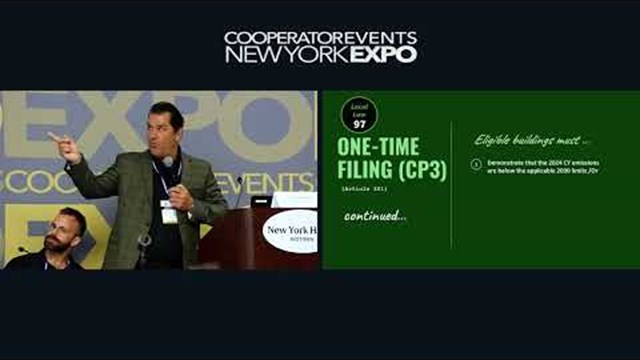
New York City is one of the most complex and competitive real estate markets in the world. From towering Manhattan co-ops to charming Brooklyn brownstones, managing property here is both an art and a science. Behind every well-maintained lobby, every contented tenant, and every financially healthy building is a property manager who knows the secrets to keeping it all together.
After 21 years in the property management biz, I’ve learned a few things. Here are the top secrets of successful property management in New York City:
Relationships Are Everything
The most skilled NYC property managers don’t just maintain buildings — they manage relationships. Superintendents, doormen, HVAC vendors, DOB inspectors, and your residents themselves— a good property manager has deep connections in every corner of the city. Why does this matter?
Because in NYC, where response time is everything, having the right person pick up the phone can mean:
- Fixing a gas leak in hours, not days
- Securing a same-day inspection appointment
- Negotiating lower rates with long-trusted contractors
Secret: The best managers don’t rely on Google — they build and maintain relationships.
Knowledge of Local Laws Isn’t Optional — It’s Essential
NYC real estate is governed by a labyrinth of regulations. Local Law 97, rent stabilization, facade inspections (FISP), lead paint compliance, parapet inspections — the list is long, and grows every year.
Property managers who stay ahead of these laws protect owners from major penalties. For example:
- Missing Local Law 11 (FISP) facade deadlines can result in fines of $1,000 per month
- Renting a unit without a valid Certificate of Occupancy can expose an owner to serious legal action
- Failing to post required boiler inspections can lead to hefty DOB violations
Secret: Great property managers operate like legal interpreters — they translate city code into clear action for boards and owners.
The Difference is in the Details
Some buildings feel effortless; the hallways and stairwells are clean, the garbage is out, and repairs just happen. That’s no accident. Great management means creating a seamless resident experience. Residents might never notice when everything works. But they always notice when it doesn’t.
Top-tier managers obsess over details that others miss:
- Does this replacement hallway lightbulb match the others?
- Are building notices clear, friendly, and multilingual if needed?
- Are seasonal tasks, like air conditioner removal, done proactively?
Secret: The tiny, repeatable things done consistently are what separates the average from the excellent.
Work Orders Are the Bedrock of Accountability
In a small building, an owner may get away with informal communication. But in NYC, the volume of maintenance requests can be overwhelming. The only way to avoid chaos? A robust work order system.
The best managers:
- Log every request into a digital system
- Track technician time and materials
- Report back to owners or boards with resolution notes and photos
- Flag recurring issues for deeper capital planning
Secret: If a property manager can’t produce a history of maintenance for your building, they’re not managing proactively — they’re reacting.
Tenant Communication is a Superpower
A shocking number of NYC tenant issues come down to poor communication. Well-managed buildings have fewer late rents, fewer noise complaints, and fewer negative online reviews. Why? Because tenants feel heard, even when things go wrong. Top managers avoid tension and misunderstandings by being:
- Clear about expectations
- Proactive with updates
- Available (within reason) for questions and feedback
- Transparent about timelines
Secret: In NYC, property managers often act as customer service agents, diplomats, and therapists — sometimes all in one day.
Smart Managers Think Like Asset Managers
Managing a building is one thing. Managing it profitably is another. Savvy property managers track ent operating income (NOI), identify cost-saving opportunities, and help owners avoid “death by a thousand cuts” — the slow bleed of untracked leaks, inefficient systems, and unchecked expenses—by planning for long-term capital projects like:
- Roof replacements
- Boiler upgrades
- Hallway renovations
- Local Law 97 retrofits
Secret: Great managers think beyond operations — they think like investors.
Vendor Loyalty is Earned, Not Assumed
In NYC, everyone has a guy—a plumber, electrician, contractor, etc. The right one can save you thousands. The wrong one can create thousands in damage. The best managers know that vendor loyalty must be earned over time through:
- Fair pricing
- Reliable work
- Transparency in billing
- Responsiveness under pressure
Secret: Top managers don’t just find vendors — they cultivate partnerships that benefit the building.
Technology = Competitive Edge
Even in a city as old-school as New York, technology is changing property management for the better.
The best firms use:
- Building management portals for owners and residents (Brownstone uses Appfolio)
- Automated rent/fee collection and accounting software
- Real-time tracking for open violations and permits
- Cloud-based document storage for seamless board transitions
Secret: If your building still runs on Post-Its and clipboards, you’re paying for inefficiency.
Field Presence > Office Presence
A common complaint among property owners: “I never see my manager.”
In NYC, where so much can go wrong so quickly, the best managers don’t hide behind desks. They’re out there:
- Walking rooftops
- Inspecting basements
- Talking to supers and residents in person
- Spot-checking cleaning and contractor work
Secret: If your manager isn’t in the field, they’re managing reactively — not proactively.
The Best Managers Say No (When Necessary)
It may seem counterintuitive, but great property managers don’t just say “yes” to every request. They know that protecting the building’s long-term value sometimes means making unpopular — but necessary — decisions, and aren’t afraid to:
- Push back on unnecessary spending
- Enforce lease terms
- Insist on following code, even when inconvenient
- Challenge contractors who try to upcharge or cut corners
Secret: A manager who always agrees with everyone is probably not protecting your interests.
Excellence is Invisible
Most New Yorkers only think about property management when something goes wrong: the elevator is out, the trash wasn’t picked up, the hallway smells like gas. That’s because the best managers work tirelessly behind the scenes to make sure you don’t notice them. They blend legal expertise, interpersonal finesse, operational discipline, and financial savvy — all under the pressure of one of the most demanding cities in the world.
Whether you own a single condo unit, a small rental portfolio, or serve on a co-op board, understanding the hidden truths of NYC property management can save you time, money, and massive headaches. To succeed as a board member or property owner, partner with a manager who knows these secrets and lives them every day. In a city where time is money and details matter, great property management isn’t a luxury — it’s a necessity.
Josh Blackman, Esq. is the Principal of Brownstone Property Group, a residential/commercial property management firm serving Brooklyn, Manhattan, and Queens.









Comments
Leave a Comment